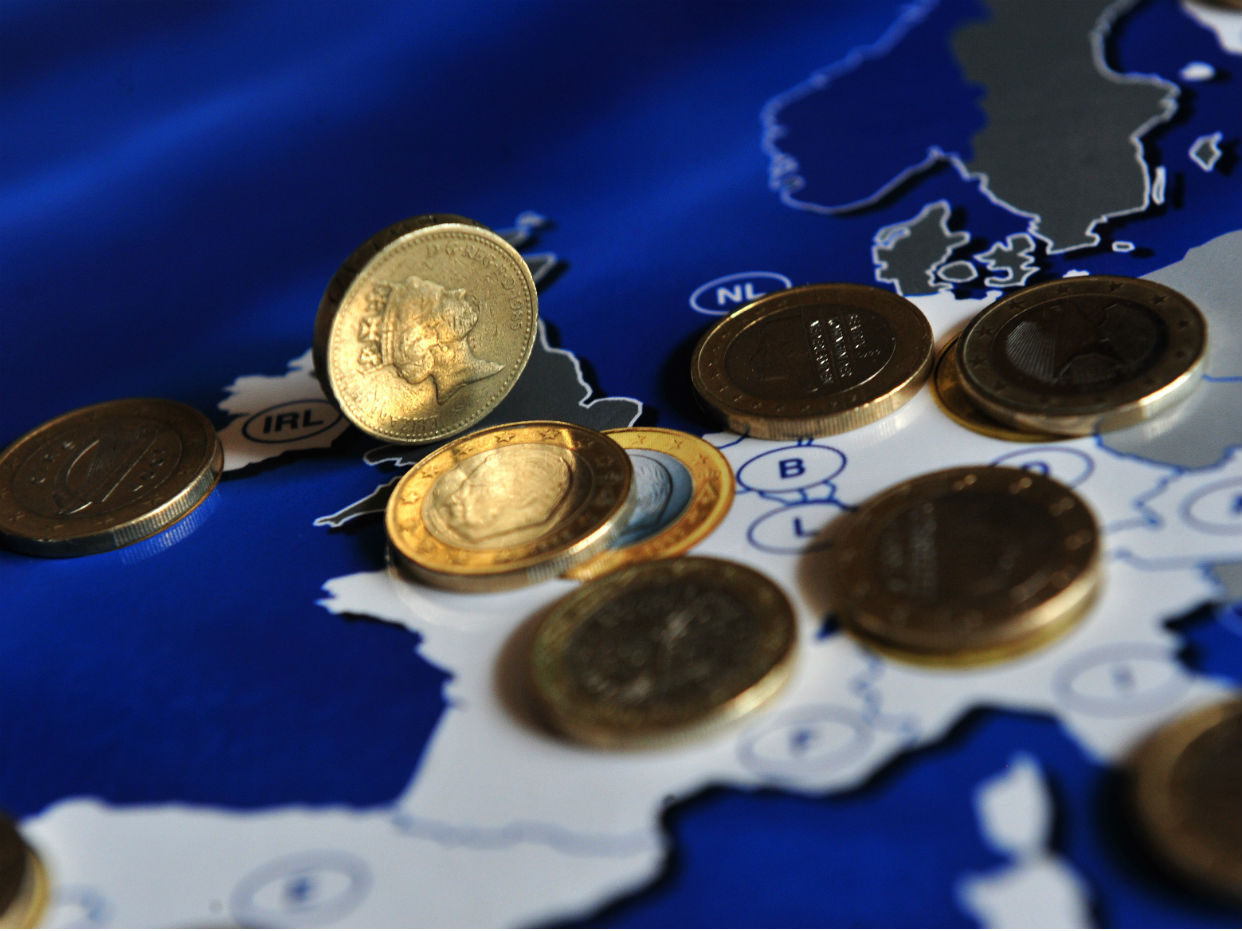UK 'faces prolonged period' of economic weakness
EY Item Club warns vote for Brexit will hit GDP, while household incomes will be squeezed by rising inflation

A free daily email with the biggest news stories of the day – and the best features from TheWeek.com
You are now subscribed
Your newsletter sign-up was successful
The UK faces a "prolonged period" of weaker economic growth in the wake of the decision to leave the EU, warns the economic forecasting group EY Item Club.
Chief economic adviser Peter Spencer said: "So far it might look like the economy is taking Brexit in its stride, but this picture is deceptive.
"Sterling's shaky performance this month provides a timely reminder that challenges lie ahead."
The Week
Escape your echo chamber. Get the facts behind the news, plus analysis from multiple perspectives.

Sign up for The Week's Free Newsletters
From our morning news briefing to a weekly Good News Newsletter, get the best of The Week delivered directly to your inbox.
From our morning news briefing to a weekly Good News Newsletter, get the best of The Week delivered directly to your inbox.
The think-tank, which is sponsored at arm's length by Ernst & Young, says the economy will grow by 1.9 per cent this year. However, it expects that performance to "fizzle out as inflation rises", says the BBC.
GDP will drop to 0.8 per cent for 2017 before expanding back to 1.4 per cent the following year, the group predicts, while inflation will hit 2.6 per cent in 2017, dropping back to 1.8 per cent in 2018.
Spencer adds: "As inflation returns over the winter, it will squeeze household incomes and spending.
"The pressure on consumers and the cautious approach to spending by businesses mean that the UK is facing a period of relatively low growth."
A free daily email with the biggest news stories of the day – and the best features from TheWeek.com
The group says growth in consumer spending will slow from this year's 2.5 per cent to 0.5 per cent in 2017 and 0.9 per cent the following year. It also expects business investment to fall 1.5 per cent this year and two per cent in 2017.
Meanwhile, a senior Bank of England official told the BBC inflation may surpass its two per cent target, fuelled by the weakness in the pound caused by the Brexit vote.
Ben Broadbent said letting inflation run ahead of the target would limit the "undesirable consequences", such as lower growth and higher unemployment.
-
 The world’s most romantic hotels
The world’s most romantic hotelsThe Week Recommends Treetop hideaways, secluded villas and a woodland cabin – perfect settings for Valentine’s Day
-
 Democrats push for ICE accountability
Democrats push for ICE accountabilityFeature U.S. citizens shot and violently detained by immigration agents testify at Capitol Hill hearing
-
 The price of sporting glory
The price of sporting gloryFeature The Milan-Cortina Winter Olympics kicked off this week. Will Italy regret playing host?
-
 The end for central bank independence?
The end for central bank independence?The Explainer Trump’s war on the US Federal Reserve comes at a moment of global weakening in central bank authority
-
 Will Trump’s 10% credit card rate limit actually help consumers?
Will Trump’s 10% credit card rate limit actually help consumers?Today's Big Question Banks say they would pull back on credit
-
 What will the US economy look like in 2026?
What will the US economy look like in 2026?Today’s Big Question Wall Street is bullish, but uncertain
-
 Is $140,000 the real poverty line?
Is $140,000 the real poverty line?Feature Financial hardship is wearing Americans down, and the break-even point for many families keeps rising
-
 Fast food is no longer affordable for low-income Americans
Fast food is no longer affordable for low-income AmericansThe explainer Cheap meals are getting farther out of reach
-
 Why has America’s economy gone K-shaped?
Why has America’s economy gone K-shaped?Today's Big Question The rich are doing well. Everybody else is scrimping.
-
 Should Labour break manifesto pledge and raise taxes?
Should Labour break manifesto pledge and raise taxes?Today's Big Question There are ‘powerful’ fiscal arguments for an income tax rise but it could mean ‘game over’ for the government
-
 From candy to costumes, inflation is spooking consumers on Halloween this year
From candy to costumes, inflation is spooking consumers on Halloween this yearIn the Spotlight Both candy and costumes have jumped significantly in price